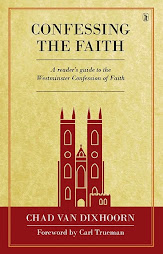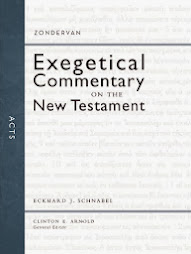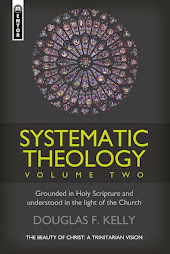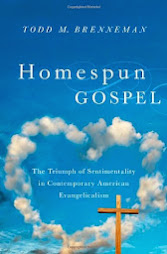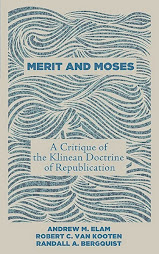Tuesday, September 30, 2014
Sunday's Sermon
On Sunday I preached part 18 in our series through the Book of Acts. It is entitled "The Rejected Redeemer" (Acts 7:17-43) and can be listened to or downloaded HERE. We are also now podcasting our sermons.
Monday, September 29, 2014
De-Cisions, De-Cisions
In is excellent book Leading with a Limp, Dan Allender points out the isolating nature of decision making.
Everyday the pastor is aware of the fact that with each decision he makes he is alienating some of the very people he must be building bridges toward. The tension can be excruciating at times.
To decide requires a death, a dying to a thousand options, the putting aside of a legion of possibilities in order to choose just one. De-cide. Homo-cide. Sui-cide. Patri-cide. The root word decidere means "to cut off." All decisions cut us off, separate us from nearly infinite options as we select just one single path. And every decision we make earns us the favor of some and the disfavor of others...This is one of the reasons that leadership can be so lonely. I suggest that this is particularly true with leadership in the church. In businesses and even most non-profits the leader has a certain amount of leverage that pastors do not possess. Pastors are called to lead (or help lead) the very ones who pay his salary. It may sound carnal to be concerned about things like providing food and shelter for ones family but pastors actually do think about such things.
A good leader will, in time, disappoint everyone. Leadership requires a willingness to not be liked, in fact, a willingness to be hated. But is is impossible to lead people who doubt you and hate you. So the constant tug is to make the decision that is the least offensive to the greatest number and then to align yourself with those who have the most power to sustain your position and reputation in the organization.
Everyday the pastor is aware of the fact that with each decision he makes he is alienating some of the very people he must be building bridges toward. The tension can be excruciating at times.
Wednesday, September 24, 2014
Mortification of Spin
On this week's Mortification of Spin, Carl, Aimee, and I are joined by Rachel Miller to discuss the Patriarchy movement.
Join a provocative conversation with Rachel Miller, editor and writer for the Aquila Report, as she enlightens us about the patriarchy movement, its driving forces, and its many dangers that have gone under the radar in reformed circles. It's all talk about headship, gender roles, and the Duggars. Listen to the team tackle sinister elements of the movement and how to approach it from a pastoral perspective. They laugh, they pry, they get serious.
Tuesday, September 23, 2014
Sunday's Sermon
On Sunday we continued our series through the Book of Acts. The message was part 17 and is entitled "Promise, Rejection, and Deliverance" (7:1-16). You can listen to or download it HERE.
Also, we are now podcasting our sermons.
Wednesday, September 17, 2014
Michael Horton on MOS
Michael Horton joins us on the latest edition of Mortification of Spin. Carl seems to think that Aimee and I fawn a bit too much over Dr. Horton. And perhaps we do. I just think Trueman is jealous that we don't treat him with the same deference.
Gallantly riding in from the White Horse Inn, our guest, Michael Horton -- author and fellow podcaster -- shares his thoughts on reformed theology and how he came upon it garbed in silk and laden with puka shells. Join the usual Spin Team as they discuss some of the nuts and bolts of the reformed faith, ponder how to "get the Gospel right" and discover Dr. James Boice's fascinating role in Horton's 'journey' to reformed theology.
Mars Hill in Forbes
Over at Forbes, Rob Asghar has written quite an interesting piece on the Mars Hill debacle. Whether he knows it or not he makes a case for denominationalism and sound polity:
The central focus of the article is on the malignant nature of toxic leading and following. Along the way he makes statements that the church ought to carefully consider. Without dispensing with the responsibility to restore the one who has sinned, the church must also consider realities such as sociopathy. In other words, the church must not be naive about the reality that some pastors, no matter how sincere their repentance, must never serve as pastors again.
Could it be that this writer for Forbes has a better grasp of the consequences of pastoral malpractice? Certainly he raises some important questions about the difference between a pastor whose sins and frailties are common to most Christians and the one who is simply not qualified for the role to begin with.
Read the entire article HERE.
Some organizations are more wired than others for spectacular success or spectacular failure. Nondenominational megachurches are one example. They often can be free-wheeling, Wild West-style operations, unencumbered by national bureaucracies. That frees them to respond to grow quickly … or to grow malignantly.
The central focus of the article is on the malignant nature of toxic leading and following. Along the way he makes statements that the church ought to carefully consider. Without dispensing with the responsibility to restore the one who has sinned, the church must also consider realities such as sociopathy. In other words, the church must not be naive about the reality that some pastors, no matter how sincere their repentance, must never serve as pastors again.
With toxic leaders, there are no happy endings, no matter how hard you pray. You just have to move on. That may seem especially sad to those Mars Hill congregants who want Driscoll to undergo a disciplinary process so that that a newly mature, repentant and humbled version of himself might someday take the pulpit.
But a number of psychologists have told me that the truly toxic leaders, the ones who manage to cause trouble on the scale of a Driscoll, are tragically irredeemable as managers. Oftentimes, the disciplining process only teaches them new ways to exploit the system while pretending to obey it. (Bear in mind that Driscoll himself has been claiming for years that he’s been making progress on his shortcomings.)
Could it be that this writer for Forbes has a better grasp of the consequences of pastoral malpractice? Certainly he raises some important questions about the difference between a pastor whose sins and frailties are common to most Christians and the one who is simply not qualified for the role to begin with.
Read the entire article HERE.
Tuesday, September 16, 2014
Sunday's Sermon
On Sunday we jumped back into our study of Acts. It is part 16 in the series and is entitled "Witness and Opposition" (6:8-15). You can listen to or download it HERE.
 Also, Covenant Presbyterian is now Podcasting its sermons. If you don't already, get the Podcast app and look up Covenant Presbyterian Church.
Also, Covenant Presbyterian is now Podcasting its sermons. If you don't already, get the Podcast app and look up Covenant Presbyterian Church.
 Also, Covenant Presbyterian is now Podcasting its sermons. If you don't already, get the Podcast app and look up Covenant Presbyterian Church.
Also, Covenant Presbyterian is now Podcasting its sermons. If you don't already, get the Podcast app and look up Covenant Presbyterian Church.Wednesday, September 10, 2014
Yes, you can trust the Bible...
Michael Kruger is continuing his helpful series of posts entitled Does the Bible Ever Get it Wrong. These posts are in response to a series by Peter Enns denying the historical reliability and theological unity of the Bible. Dr. Kruger has assembled a team of world-class scholars to address various questions concerning the Bible's reliability.
Here they are so far:
Greg Beale
Craig Blomberg
Darrel Bock
Here they are so far:
Greg Beale
Craig Blomberg
Darrel Bock
Labels:
biblical reliability,
Craig Blomberg,
Darrel Bock,
Greg Beale,
inerrancy
Dating or Courtship?
The latest edition of Mortification of Spin: Bully Pulpit is up and running. For this program we chose a topic over which there are no strong opinions...
Dating? Courtship? What do those words mean? Do they even matter in today's hook-up culture? What is the best option? Always ready to ruffle some feathers, the gang takes this subject head-on and, in usual Spin fashion, doesn't pull any punches. Their discussion centers around the Duggar family's world of courting rules and regulations. Though Aimee & Todd are the only hosts with daughters, Carl tries hard to throw in his two cents: "Just have sons." Listen in to this casual conversation as the crew destroys the spin once again.
Tuesday, September 9, 2014
Sunday's Sermon
On
Sunday I wrapped up our series through Job. It is entitled “Blessing Comes in
the End” and can be listened to or downloaded HERE.
Monday, September 8, 2014
Your Best Life Then...
Our culture has
come to value only things that are practical, things that work. Every idea or
conviction is judged by its utility: Will
it help me raise my kids, build a successful marriage, live a healthy life?
When an idea or conviction doesn’t come through, we find it easy to move on to
another product. So often, when people come to Christ, they are promised
‘victory in Jesus.’ Smiling people tell about how they once were unhappy, but
now they are filled with buoyant exultation. Broken marriages are fixed,
wayward children are returned to the straight and narrow, and depression is
banished.
God nowhere
promises us temporal prosperity, but the way he has redeemed us makes all of our trials cruciform, that is, shaped not by the circumstances themselves but
by suffering and victory of Christ…The message we
are given to proclaim is not that God has come to make our lives better, more
interesting, more influential, more virtuous, or more successful, but to bury
us and make us alive.
Michael Horton from A Place for Weakness (pp 46-47)
The Triumph of Sentimentality
I recently began reading Homespun Gospel: The Triumph of Sentimentality in Contemporary American Evangelicalism by Todd Brenneman. Dr. Brenneman is Assistant Professor of Christian History at Faulkner University. His knowledge of the sentimental heart of American evangelicalism is, I'm sure, quite extensive given the fact that his PhD dissertation focused on the work of Max Lucado.
 I am not very far into my reading at this point and it is clear that I will take issue with some of Dr. Brenneman's presuppositions. However, it is also clear that Brenneman understands a great deal about what drives contemporary evangelicalism. One particular passage in the introduction affirms (excruciatingly so) my own experience in a "broadly evangelical" church.
I am not very far into my reading at this point and it is clear that I will take issue with some of Dr. Brenneman's presuppositions. However, it is also clear that Brenneman understands a great deal about what drives contemporary evangelicalism. One particular passage in the introduction affirms (excruciatingly so) my own experience in a "broadly evangelical" church.
Eerily familiar.
 I am not very far into my reading at this point and it is clear that I will take issue with some of Dr. Brenneman's presuppositions. However, it is also clear that Brenneman understands a great deal about what drives contemporary evangelicalism. One particular passage in the introduction affirms (excruciatingly so) my own experience in a "broadly evangelical" church.
I am not very far into my reading at this point and it is clear that I will take issue with some of Dr. Brenneman's presuppositions. However, it is also clear that Brenneman understands a great deal about what drives contemporary evangelicalism. One particular passage in the introduction affirms (excruciatingly so) my own experience in a "broadly evangelical" church.[Evangelicals] have looked for ways to construct a sense of community among those who participate in their culture, primarily through the rhetoric of affect. Evangelicals like those examined in this work conceptualize "the social world as an affective space where people ought to be legitimated because they have feelings and because there is an intelligence in what they feel that knows something about the world that, if it were listened to, could make things better." They live in an aesthetic world where emotion is the currency to interact not only with other human beings but also with God. They produce commodities that enable themselves to "feel as though it expresses what is common among them" without recognizing the differences that exist among even evangelicals about what constitutes the appropriate way to follow God's commands and expectations.
Modern evangelical literature and practice appear to be outlets to habituate practitioners to a culture of simplicity that reduces the practice of religion to the creation of feeling. In such a mind-set, human beings complicate life, but God offers something more straightforward. Doctrinal division, intellectual inquiry, and elaborate constructs of religiosity all move humanity farther from God, whereas emotionality can move them closer...[The] work of evangelical culture is to sentimentally reconstruct the details of history, biblical interpretation, and theology to craft a vague or simple version of the religion.
Eerily familiar.
Friday, September 5, 2014
Phil Johnson on Spurgeon
The latest Mortification of Spin is up and running. On this episode we interview Phil Johnson of Grace To You, the original Pyromaniac, and resident expert on all things Charles Spurgeon.
This just in: "Polite Society" has banished Carl, Aimee, and Todd to live on Leper Island! While exploring the island they found another outcast, one who was marooned long ago - Phil Johnson. Phil, of the self-proclaimed Pyromaniacs, chats with the gang about starting fires with Frank "The Turk" and "Dispy" Dan Phillips, Charles Spurgeon's prolific preaching, the cult of celebrity pastors, and proper forms of worship. The conversation moves from levity to depth, with all the pomp, circumstance, and pizazz you've come to expect from the spinners. Listen as the crew mortify the spin as only they can.
Wednesday, September 3, 2014
Sunday's Sermon
On Sunday I preached part 10 of our series through Job. It is taken from chapters 38-41 and is entitled "God Answers." You can listen to or download it HERE.
Subscribe to:
Posts (Atom)






















